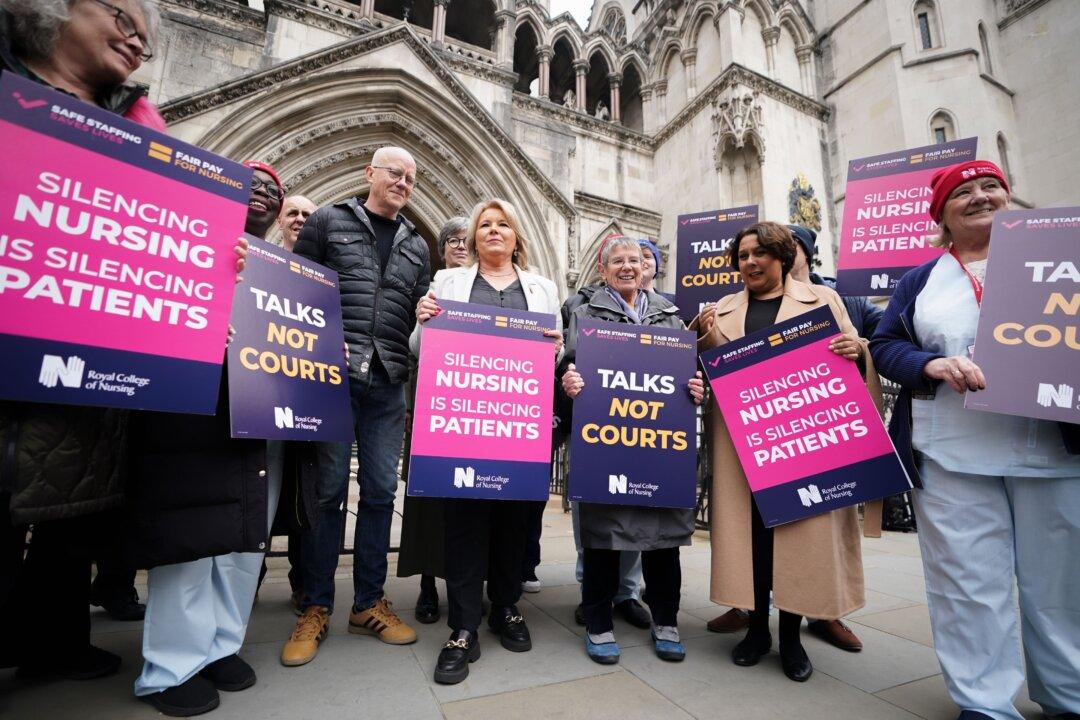The planned strike by nurses in England will be cut short after a High Court judge ruled the last day of the action would be unlawful.
The Royal College of Nursing (RCN) had planned a 48-hour industrial action in the National Health Service (NHS) in England, which would begin on the evening of April 30 and end on May 2.





